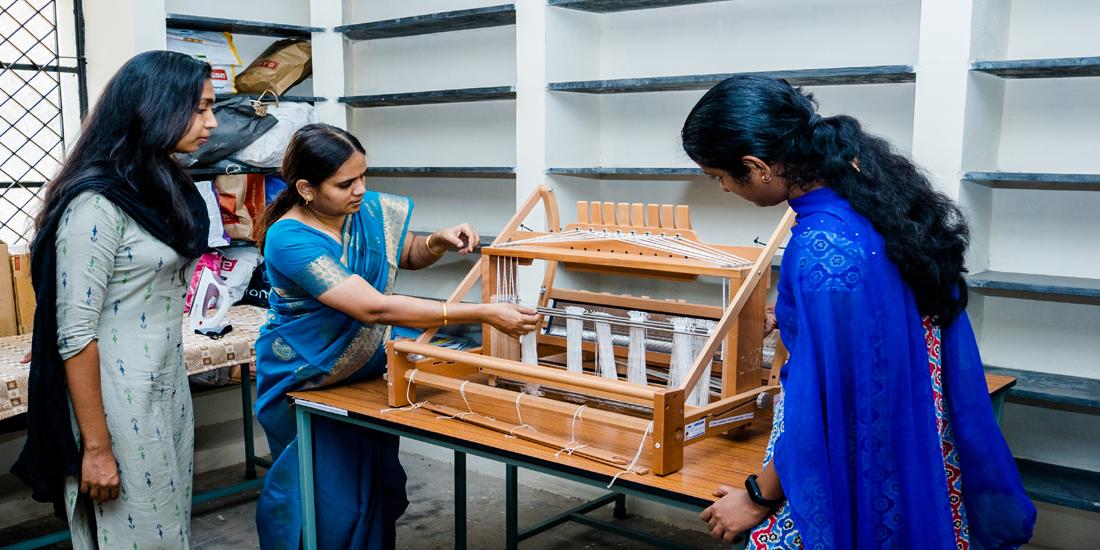Ph.D. in Apparel and Textile Science: Introduction, Admission, Registration, Eligibility, Duration, Fees, Syllabus 2024

Introduction:
The pursuit of a Ph.D. in Apparel and Textile Science represents a deep dive into the advanced study of materials, design processes, consumer behavior, and sustainability within the textile industry. This degree prepares scholars for a range of career paths, including academic, research, industry leadership, and more. In this guide, we'll explore the key aspects of this program including admission processes, eligibility criteria, completion times, and the exciting career and research opportunities it offers.
Admission Process:
- Application Submission: Candidates must submit a detailed application, including personal statements, research proposals, and previous academic records.
- Entrance Exams: Some institutions may require GRE scores or specific entrance exams focused on textile technologies and sciences.
- Interviews: Shortlisted candidates are usually invited for interviews, which may be conducted by a panel of faculty members.
- Funding Considerations: Many programs require candidates to secure funding or scholarships; details are often discussed during the interview process.
Eligibility:
- Academic Requirements: A master's degree in textile science, fashion, material science, or a related field, typically with a strong academic record.
- Research Experience: Prior research experience or industry exposure in the field of textiles or apparel can be a significant advantage.
- Technical Skills: Proficiency in relevant software and technologies used in textile research and design.
Completion Time:
- Full-time PhD: Typically, a full-time Ph.D. program in Apparel and Textile Science takes about 3-5 years to complete.
- Part-time PhD: Part-time options may extend up to 6-7 years depending on the institution and the student's pace.
Career Opportunities:
- Academia: Teach at universities and contribute to scholarly articles and research in textile science.
- Research Institutions: Lead groundbreaking research in textile durability, sustainability, and innovation.
- Fashion Industry Leaders: Positions in top fashion companies focusing on product development, innovation, and sustainability.
- Government and Policy Making: Influence policies related to textile production standards and environmental regulations.
Syllabus:
- Advanced Textile Materials: Study of new materials and their applications in fashion and industry.
- Sustainability in Textiles: Focus on environmentally sustainable practices within the textile production cycle.
- Consumer Behavior in Fashion: Insights into consumer trends and behaviors that impact fashion retailing.
- Textile Technology Innovations: Exploration of the latest technological advancements in textile production.
Internship Opportunities:
- Fashion Houses: Practical experience in leading fashion brands.
- Research Labs: Hands-on research in labs focusing on textile technology and sustainability.
- Government Projects: Involvement in national or international projects on textile regulations and sustainability practices.
Scholarships and Grants:
- University Fellowships: Many institutions offer fellowships that cover tuition and provide a stipend.
- Industry-Sponsored Scholarships: Companies within the apparel sector often sponsor students, especially for projects aligned with their business interests.
- Government Grants: Available for research that supports innovation in textile technologies and sustainability.
FAQs:
What is the significance of a Ph.D. in Apparel and Textile Science?
It provides the expertise to lead innovation and development in the textile industry, focusing on sustainability and cutting-edge technologies.
Are there any online Ph.D. programs available in this field?
Yes, some institutions offer online or hybrid formats, allowing for more flexibility, especially for working professionals.
What kind of research topics are typically covered?
Research can range from the development of new textile materials, studies on consumer behavior, to innovations in sustainable production processes.
How competitive are admissions for this Ph.D. program?
Admissions can be quite competitive, depending on the institution, as it is a specialized field with limited seats and significant interest.
